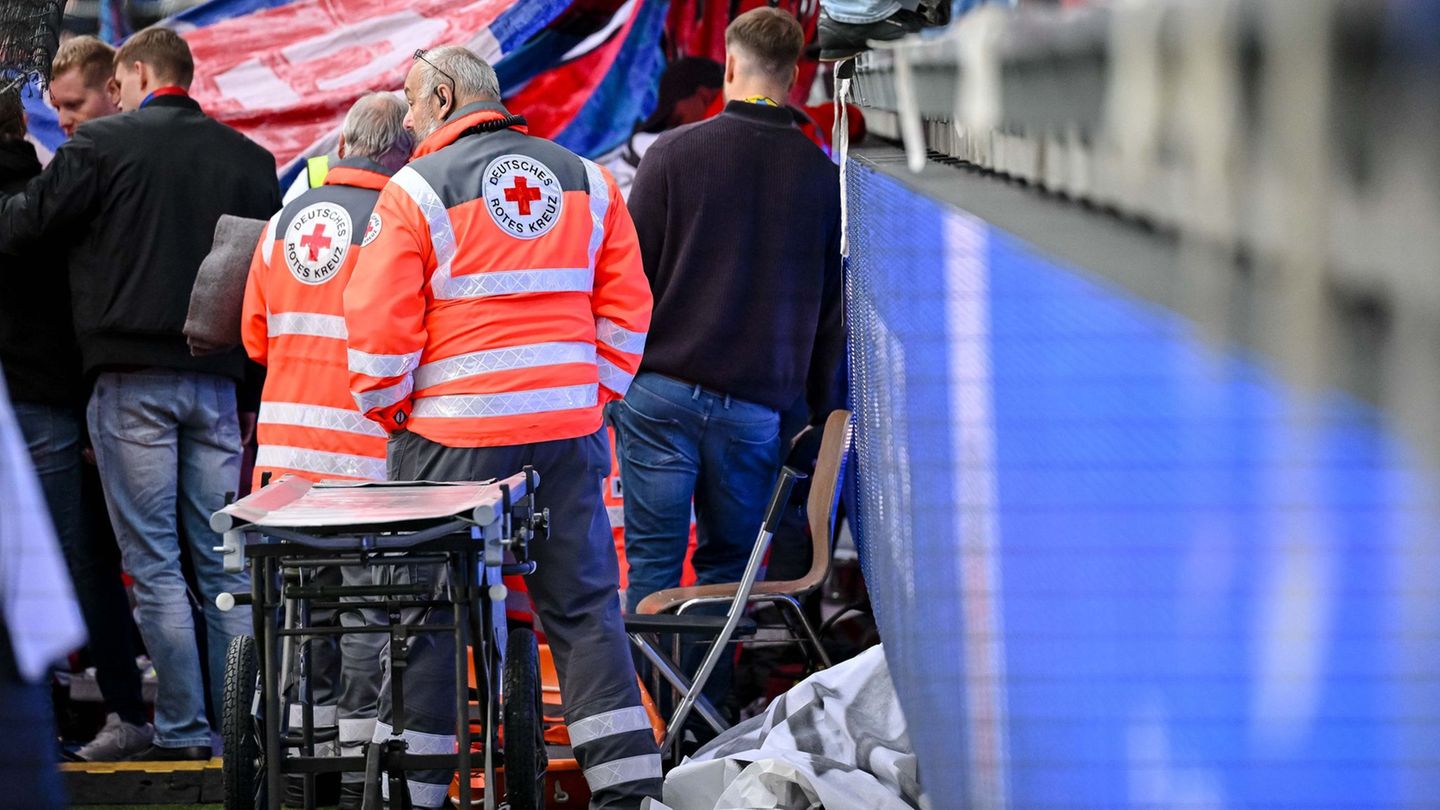In the midst of the war against Ukraine, Russia is cracking down on free media at home. Ordinary citizens are looking for ways to get hold of non-government information in a roundabout way.
Even before the war in Ukraine, Russia was certainly not considered a paradise for press freedom. The largest country in the world ranked 150th out of 180 in the index of the organization Reporters Without Borders – still ahead of countries such as Belarus, China and North Korea.
But now the Russian authorities are clearly tightening the thumbscrews. According to a new law, those who spread alleged “false information” about Russia’s army face up to 15 years in prison. Facebook and Twitter are blocked. Close critical portals and transmitters. Several foreign media – including ARD, ZDF and the British BBC – are also temporarily suspending their reporting from Russia.
If you believe Kremlin boss Vladimir Putin, everything is going “according to plan” in the “special military operation” in Ukraine – despite the 498 compatriots who, according to official information, have been killed so far. If you believe the state television, the Russian soldiers in the neighboring country are fighting bravely and considering the “neo-Nazis” in Kyiv and “liberating” the Donbass. Putin justifies the war of aggression condemned by the West by saying that he wants to protect the people in the eastern Ukrainian regions from alleged attacks by Ukrainian nationalists in the government troops.
Critical media stop working
Meanwhile, the well-known critical radio station Echo Moskvy is closing down, the Meduza portal website is no longer accessible, and the Doschd and Znak media are temporarily ceasing their work. Even the lifestyle magazine The Village, which many big-city hipsters turn to for coffee and travel tips, is closing its Moscow office. The justifications of the editors are similar: The fear for the safety of their own employees is too great.
The background to this is that on Friday evening Putin signed several laws further restricting freedom of expression in Russia, which will further curtail independent media reporting. Up to 15 years imprisonment threatens for the dissemination of alleged “false information” about the Russian armed forces. Penalties also threaten those who publicly “denigrate” the army.
Novaya Gazeta, which is experienced in war reporting, wrote last Friday: “Today the Russian parliament introduced military censorship without actually announcing it.” The newspaper, whose journalists have repeatedly been the victims of attacks in recent years, declares a little later that it can no longer report on current events in Ukraine under the current legal conditions.
«We will no longer be able to tell the truth about the fighting in Ukraine and allow both sides to speak. We will have to temporarily forget about the shelling in the cities of our brother country,” said a statement from the editors of Nobel Peace Prize winner Dmitry Muratov.
Navalny is shocked
“I’m shocked. Not just from the news, but also from the news about the news, »said the imprisoned Kremlin opponent Alexei Navalny from the prison camp. «Soon your access to information in freedom will be like it was in prison for me. That means no one at all.”
Repressions against media workers are not new in Russia, says writer and journalist Alisa Ganiyeva of the German Press Agency. “But it was the invasion of Ukraine that set the stage for a rapid, hyper-accelerated growth of oppression and dictatorship in the country.” The disappearance of critical voices is a “huge catastrophe,” complains the 36-year-old. “Russia has been covered with real censorship.” The consequences are serious: “Millions of people who have been poisoned by the powerful poison of Putin’s propaganda are now left without an antidote.”
generation issue
It is becoming increasingly difficult, especially for older Russians who are not Internet-savvy, to obtain independent information. On social networks, remaining critical media publish instructions on how to set up and use alternative connections or browsers in order to be able to access their blocked pages after all. On Instagram, users post lists of proven VPN providers (“Virtual Private Network”) and offer their fellow human beings help with the technical implementation.
Telegram has become the most important social media platform, especially for young Russians, where blocked media can continue to spread their content. Telegram co-founder Pawel Durow recently stated that he does not want to limit this source of information, which is now the only source of information for many.
Telegram as a source of information
A 26-year-old Muscovite, who regularly takes to the streets against Putin’s actions, says that she now keeps a constant eye on the channels of activists and lawyers on Telegram. “It’s the fastest way to find out what’s happening in the city and how not to get into danger during a protest.” According to civil rights activists, more than 8,000 people have been arrested nationwide in the past few days at officially banned anti-war demonstrations.
Meanwhile, author Ganiyeva paints a bleak picture of her country’s future: “I fear that we will soon have to make a terrible choice: either remain silent and retract our own earlier words, or go to prison, or try to go into an inner emigration, into a kind of parallel language.»
The current developments marked the end of a post-Soviet era with hopes for a freer Russia, she says. «And suddenly: end, off, silence. The current draconian reality means that journalists are banned from their profession and that citizens are banned from their own opinion, thought, compassion, shame, conscience, reason, truth.”
Source: Stern
David William is a talented author who has made a name for himself in the world of writing. He is a professional author who writes on a wide range of topics, from general interest to opinion news. David is currently working as a writer at 24 hours worlds where he brings his unique perspective and in-depth research to his articles, making them both informative and engaging.




